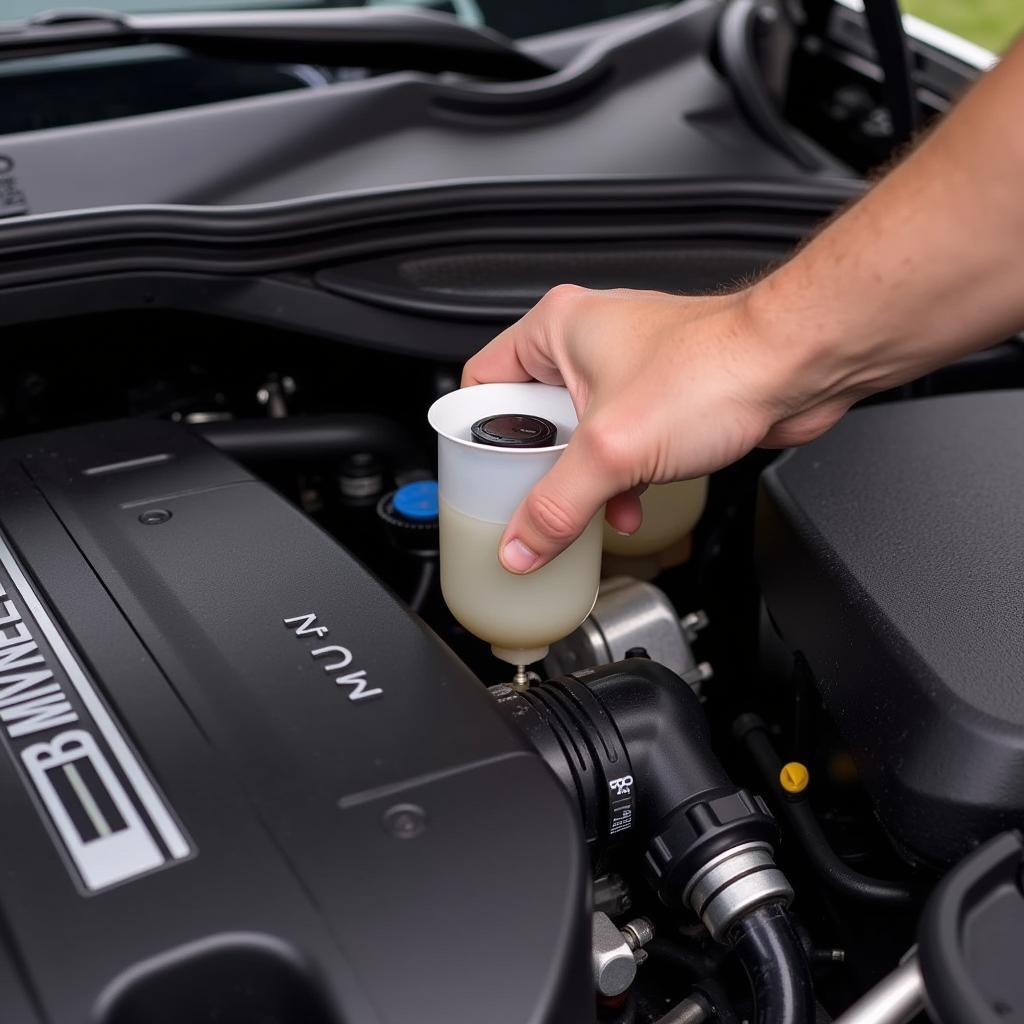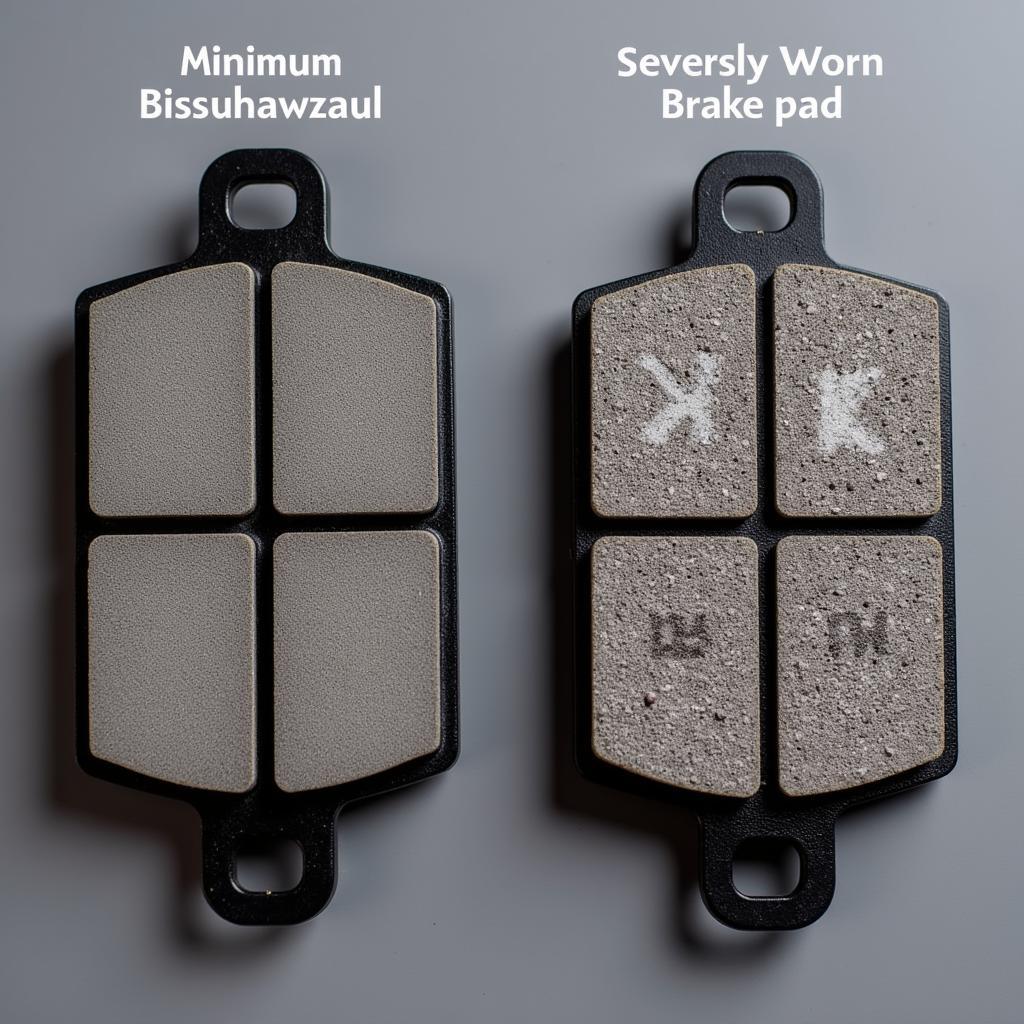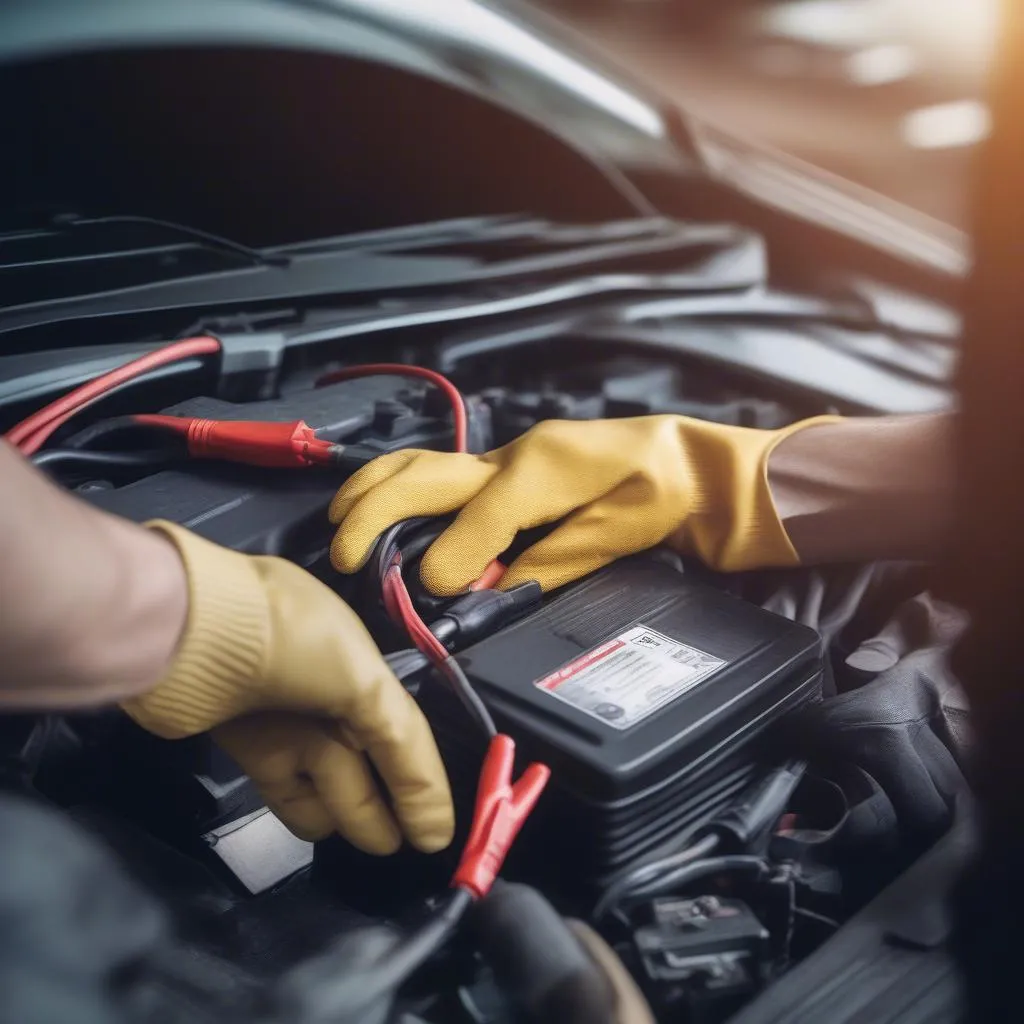A glowing brake warning lamp on your BMW’s dashboard is a clear signal that requires your immediate attention. While it can be a cause for concern, it doesn’t always signify a major problem. This comprehensive guide will delve into the common reasons why your BMW’s brake warning light might be illuminated, potential solutions, and when to seek professional help.
What Does the Brake Warning Light in a BMW Mean?
The brake warning light, often a red circle with an exclamation mark or the word “BRAKE”, serves as your BMW’s primary communication method about the braking system’s health. When illuminated, it can indicate several issues, ranging from a simple parking brake engagement to more serious concerns like low brake fluid or worn brake pads.
Common Causes of a Brake Warning Lamp Illuminating
Understanding the potential triggers behind your BMW’s illuminated brake warning lamp can help you take the right course of action. Here’s a breakdown of common culprits:
1. Engaged Parking Brake
One of the most frequent and easily remedied causes is an engaged parking brake. Before panicking, ensure your parking brake is fully disengaged.
2. Low Brake Fluid Level
Brake fluid is the lifeblood of your BMW’s braking system. Low brake fluid levels, often due to leaks or worn brake pads, can trigger the warning light.  Checking brake fluid level in BMW It’s crucial to check your brake fluid level and top it up if necessary.
Checking brake fluid level in BMW It’s crucial to check your brake fluid level and top it up if necessary.
3. Worn Brake Pads
Your BMW’s brake pads endure significant wear and tear with use. Thin brake pads can activate a sensor that triggers the warning light.  Comparison of new and worn BMW brake pads If your brake pads are nearing the end of their lifespan, replacement is essential.
Comparison of new and worn BMW brake pads If your brake pads are nearing the end of their lifespan, replacement is essential.
4. Brake Fluid Leak
A leak in your brake lines or a faulty brake caliper can lead to a loss of brake fluid pressure and trigger the warning lamp. Inspect your brake lines for any signs of leakage, such as fluid puddles under your car or a dampness around the brake components.
5. Faulty Brake Light Switch
While less common, a malfunctioning brake light switch can disrupt the brake light circuit, causing the warning lamp to illuminate. If your brake lights are not functioning correctly along with the illuminated warning light, a faulty brake light switch might be the culprit.
6. ABS System Malfunction
Modern BMWs come equipped with an Anti-lock Braking System (ABS). A problem within the ABS module, wheel speed sensors, or related wiring can trigger the brake warning lamp, often accompanied by the ABS warning light.
What to Do When Your BMW Brake Warning Light Comes On
A glowing brake warning light demands immediate action. Here’s a step-by-step guide on how to respond:
- Safely Pull Over: As soon as it’s safe, pull over to the side of the road.
- Check Your Parking Brake: Ensure your parking brake is fully disengaged.
- Inspect Brake Fluid Level: Carefully open the brake fluid reservoir and check the fluid level. Top up if necessary with the correct DOT-rated brake fluid specified in your BMW’s owner’s manual.
- Visual Inspection: Conduct a visual inspection of your brake lines and components for any signs of leaks or damage.
- Avoid Driving Further: If you notice low brake fluid, leaks, or suspect any other serious issue, avoid driving further and contact a qualified mechanic or your BMW dealership.
When to Consult a Mechanic
While some causes, like an engaged parking brake or the need to top up brake fluid, can be addressed independently, it’s crucial to remember that your BMW’s braking system is complex and crucial for safety. If you are unsure about the cause of the warning light, if the light remains illuminated after addressing the common causes, or if you experience any changes in braking performance, it’s best to seek professional help immediately.
BMW Brake Warning Light: FAQs
1. Can I drive my BMW with the brake warning light on?
Driving with an illuminated brake warning light is highly discouraged and potentially dangerous. It indicates a potential issue with your braking system that could compromise your safety and the safety of others.
2. How much does it cost to fix a BMW brake warning light issue?
The repair cost for a BMW brake warning light issue can vary significantly based on the underlying cause. A simple brake fluid top-up might be inexpensive, while repairs involving brake line replacements, ABS module issues, or caliper replacements can be considerably more costly.
3. How often should I check my BMW’s brake fluid level?
It’s recommended to check your BMW’s brake fluid level at least once a month and before any long journeys. This simple check can help identify potential issues early on.
4. Can I add any brake fluid to my BMW?
No, using the incorrect type of brake fluid can damage your BMW’s braking system. Always refer to your owner’s manual for the specified DOT rating and type of brake fluid recommended for your vehicle.
5. How can I prevent future brake warning light issues in my BMW?
Regular maintenance is key to preventing future brake warning light issues. This includes:
- Adhering to the recommended brake fluid flush intervals
- Having your brake pads and rotors inspected during scheduled maintenance
- Addressing any signs of brake issues promptly
Conclusion
Addressing a brake warning lamp in your BMW is crucial for maintaining your safety on the road. While some causes can be addressed with simple checks and fixes, it’s always advisable to consult a qualified mechanic if you are unsure about the cause or if the warning lamp persists. For more insights into specific BMW brake warning light issues, check out our articles on bmw 3 series brake fluid warning light, bmw check brake linings warning, brake fluid warning lamp illuminated, 2002 bmw x5 brake warning light reset, and 2000 bmw 528i brake warning light. By being proactive and addressing the brake warning lamp promptly, you can ensure the optimal performance and safety of your BMW’s braking system.


